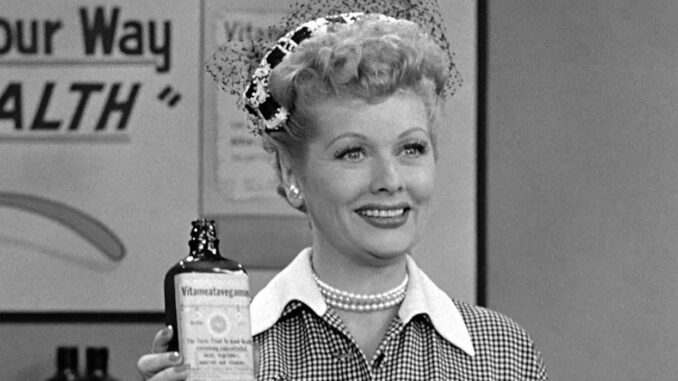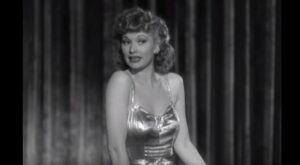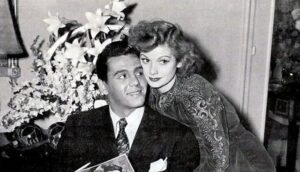
The Groundbreaking Legacy of Lucille Ball
What makes a show transcend time and remain iconic? In the case of I Love Lucy, it’s all about breaking barriers, challenging norms, and setting new standards for comedy. Let’s dive into the trailblazing journey of Lucille Ball and how she birthed one of the most revolutionary TV shows of all time.
Lucille Ball: A Comedy Pioneer
Long before she became a household name, Lucille Ball was grinding in Hollywood, taking on small film roles that barely scratched the surface of her comedic genius. She was determined to succeed in an industry that often sidelined women.

The Birth of a Legend: Desi Arnaz and Lucille Ball
Lucille’s partnership with Desi Arnaz wasn’t just romantic—it was the key to television magic. Together, they proposed I Love Lucy, a show centered on their real-life dynamic. However, convincing executives to cast a Cuban actor as the leading man was no easy task.
Overcoming Studio Resistance
Hollywood studios were skeptical. Could audiences embrace a show with an interracial couple? Lucille Ball’s tenacity and Desi Arnaz’s charm ultimately won over CBS, paving the way for a television revolution.
The Genius of Multi-Camera Production
One of the show’s most significant innovations was its use of a multi-camera setup. At the time, sitcoms were typically shot live or with a single camera. Desi Arnaz, ever the visionary, insisted on a format that would allow for better audience engagement and a polished final product.
Why Multi-Camera Changed Everything
This setup, coupled with a live audience, gave I Love Lucy its unique, energetic feel. The laughter was authentic, and the performances were as close to theater as TV could get.
Comedy Timing That Defined an Era
Lucille Ball had an unmatched knack for physical comedy. Her expressive face, perfect timing, and willingness to go all-in made her a comedic force.
Iconic Scenes That Still Make Us Laugh
Remember the chocolate factory scene? Or Lucy stomping grapes? These moments showcase her ability to blend chaos with charm, creating timeless humor.
A Show That Tackled Real Issues
Beneath the laughs, I Love Lucy wasn’t afraid to address real-life issues. Whether it was balancing work and family or navigating cultural differences, the show reflected the complexities of everyday life.
Setting the Standard for Female Representation
Lucille Ball didn’t just star in the show; she co-owned it. As the head of Desilu Productions, she shattered glass ceilings, becoming one of the most powerful women in Hollywood.

Why This Matters Today
In an era where women were often relegated to secondary roles, Lucille’s leadership proved that women could dominate in front of and behind the camera.
Audience Impact and Cultural Phenomenon
I Love Lucy wasn’t just a hit—it was a cultural juggernaut. Millions tuned in every week, and Lucy became a household name worldwide.
The First TV Pregnancy
One of the show’s boldest moves was depicting Lucy’s real-life pregnancy. At the time, pregnancy was considered taboo for television, but Lucille Ball and Desi Arnaz challenged this, paving the way for more realistic storytelling.
The Evolution of Sitcoms
I Love Lucy laid the groundwork for modern sitcoms. Its structure, pacing, and humor style continue to influence shows like Friends and The Office.
Behind-the-Scenes: A Peek Into Production
The magic of I Love Lucy didn’t just happen on screen. Behind the scenes, meticulous planning, innovative techniques, and Lucille Ball’s perfectionism ensured every episode was a masterpiece.
Fun Facts About Filming
- The famous Vitameatavegamin scene required multiple takes, each funnier than the last.
- Desilu Studios was among the first to use reruns to fill programming gaps, a practice now standard in television.
Lucille Ball’s Enduring Influence
Even decades after I Love Lucy aired its final episode, Lucille Ball’s influence remains profound. Comedians, actresses, and producers often cite her as a trailblazer who paved the way for women in entertainment.
How ‘I Love Lucy’ Changed Television Forever
Without I Love Lucy, the television landscape might look very different. Its impact on comedy, production, and representation set a standard that shows still strive to meet today.
Conclusion: A Legacy That Lives On
Lucille Ball didn’t just create a television show; she created a legacy. I Love Lucy broke barriers, challenged conventions, and brought laughter to millions. It remains a shining example of how comedy can be both groundbreaking and universally beloved.
FAQs
1. Why was Lucille Ball considered a trailblazer in comedy?
Lucille Ball broke numerous barriers in television, including co-owning her production company and creating innovative content that challenged societal norms.
2. What made I Love Lucy so groundbreaking?
The show introduced multi-camera production, tackled real-life issues, and featured one of the first televised pregnancies, setting new standards for sitcoms.
3. How did Lucille Ball and Desi Arnaz influence TV production?
They pioneered multi-camera shooting with a live audience and established practices like syndication and reruns, revolutionizing how TV shows were made and distributed.
4. What cultural impact did I Love Lucy have?
The show became a cultural phenomenon, influencing fashion, language, and humor, and it paved the way for future sitcoms.
5. Is Lucille Ball still influential today?
Absolutely! Her work continues to inspire comedians, actors, and producers, and I Love Lucy remains a beloved classic that showcases her timeless talent.